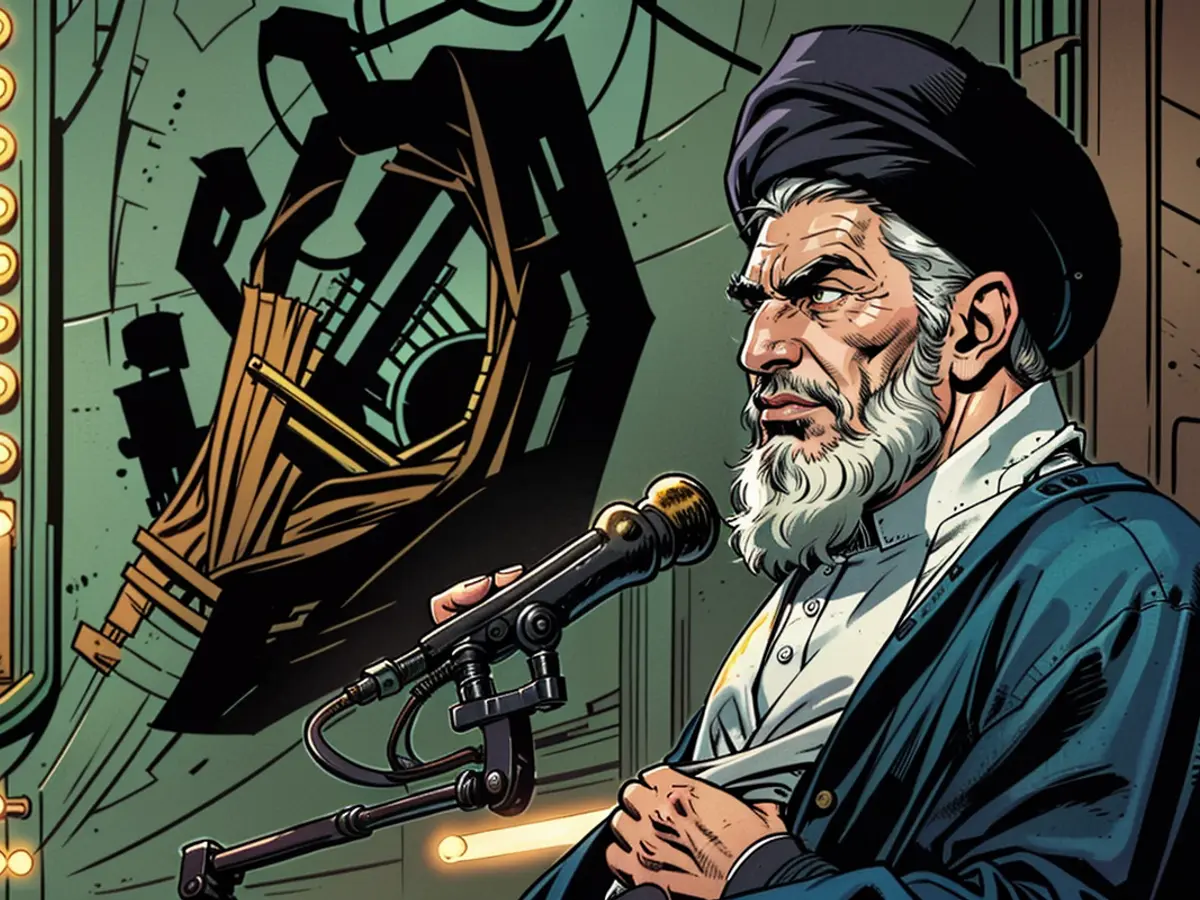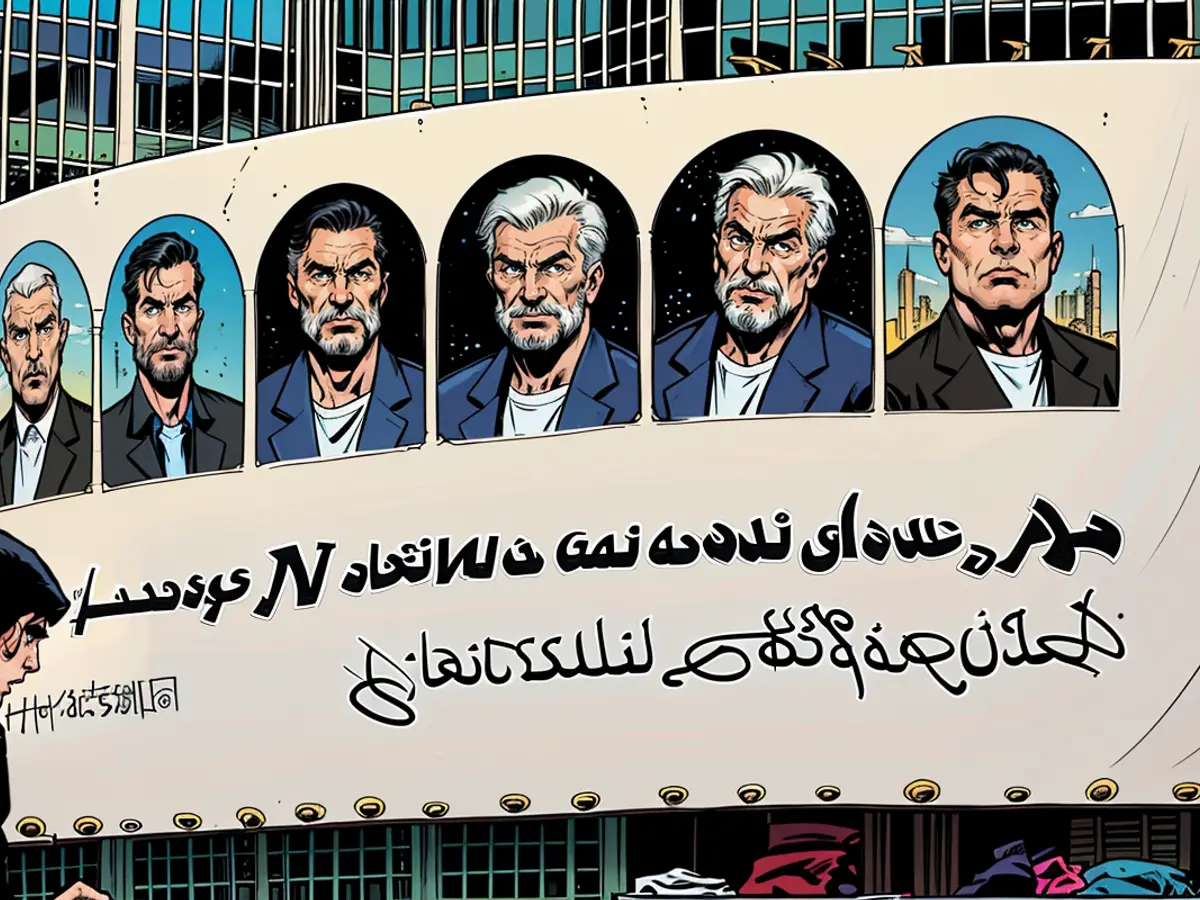Iran elects a "politically impotent" president
After the death of President Raisi, Iran chooses his successor. The candidates are handpicked and the majority are hardliners. However, many voters, both men and women, do not go to vote. This is because the President holds little power, and the experiences of mass protests are still fresh in people's minds.
The Iranian presidential election brings people to the streets, but not as the authorities in Teheran wish. Under the slogan "Free Iran," the Iranian opposition expects tens of thousands of people to a large demonstration in Berlin on Saturday. There, an alternative to the existing Islamic Republic will be shown: a democratic, secular state. "It's not the time for elections, but for a revolution," the call to the demo reads. The presidential election, which takes place on Friday, is referred to as a farce.
This election is indeed a farce. But a revolution in Iran is not foreseeable. The fundamentalist elite clings to power with all its might, especially after the incumbent President Ebrahim Raisi died in a helicopter crash in May. The jurist was ultra-conservative and defended the Islamic Republic at all costs. He was a perpetrator of the mass executions of political prisoners at the end of the 80s. He suppressed the mass protests of 2022 and 2023 as President. And he was one of the favorites for the succession of Ayatollah Ali Khamenei, the Supreme Leader of the country.
Even Khamenei makes the election a farce. "The power center in Iran consists of the Supreme Leader, his so-called office, which is a kind of parallel government, and the Islamic Revolutionary Guards," says Ali Fathollah-Nejad, founder and director of the Center for Middle East and Global Order (CMEG). The President plays no significant role, the power center remains unchanged through the election.
Four Candidates, Almost Exclusively Hardliners
It doesn't matter who wins this election, whether in the first or second round: The decision in important matters does not lie with the President. The people of Iran are well aware of this. "There is no enthusiasm for these elections among the population because they are neither free nor fair," says Fathollah-Nejad. The candidates were handpicked by the Supreme Leader, they were either very close to him or had at least signaled their loyalty. "The President is politically impotent and at the same time very loyal to the power center."
The so-called Guardian Council, which consists of six clerics and six Islamic jurists, determines the candidates. It has approved six applications but rejected 74, including four from women. In the end, only four candidates run: [
- Amirhossein Ghazizadeh Hashemi
- Ebrahim Raisi
- Mohsen Mehralizadeh
- Mohsen Rezaei
Two of them dropped out before the voting day in favor of the remaining hardliners to consolidate their forces.
- Dschalili, named Said, is a hardliner and former chief negotiator in the atomic talks. The 58-year-old is a promising candidate from the ultra-conservative faction. Currently, he is a member of the Arbitration Council, a committee appointed by Khamenei.
- Ghalibaf, named Mohammad Bagher, is the incumbent Parliament President. Prior to this, he was a General in the Revolutionary Guards.
- Purmohammadi, named Mostafa, is an Islamic scholar and was formerly Minister of Interior and Justice. Like Raisi, he is believed to have played a role in the mass executions in the 80s. His candidacy is considered hopeless.
- Peseschkian, named Massud, is the only "moderate" candidate running. He was Health Minister under President Khatami, and is now supported by him and the former President Hassan Ruhani. The 69-year-old is known for his open words. He criticized the lack of transparency of the authorities in the case of Mahsa Amini, who was killed by the morality police.
However, the term "moderate" is misleading. "Peseschkian belongs to the reformist wing of the political establishment of the Islamic Republic," says Fathollah-Nejad. He is part of the Islamic political spectrum. "Moreover, he distinguished himself in the campaign through a very high loyalty to the Supreme Leader and announced his intention to follow his general guidelines." Fathollah-Nejad considers it possible that the participation of a so-called Moderate could lead to a slightly higher voter turnout. In fact, there is a great apathy among voters.
High Inflation, Deteriorating Currency
The economic situation in Iran is poor: growth is declining, the currency is depreciating. The economic boom brought about by the nuclear deal has passed. Instead, the reintroduced US sanctions are hindering the economy. Inflation is high: in 2023 it was an average of 41.5%, and this year it is predicted to be only slightly lower according to forecasts. Due to the rigid political system, many people therefore refuse to vote. A turnout of approximately 40% was announced for the Parliament election on 1. March - a new low.
Fathollah-Nejad also doubts these figures: "Whether it's about voter turnout, the unemployment rate, or even the inflation rate: these are manipulated numbers," he says - and gives an example: Media close to the Revolutionary Guards had predicted a turnout of 40% before the Parliament election. So it turned out. The expert also points to the extremely low voter turnout in Teheran, which was even below ten percent according to official figures.
To the economic problems burdening many people, there comes a social rift. Expert Ali Vaez of the International Crisis Group speaks of a deepening "divide between state and society." None of the candidates have presented "a concrete plan" on how to deal with this issue. Many Iranians, especially Iranian women, still remember vividly how the mass protests in 2022 and 2023 after the death of the Kurdish-origin Iranian woman Jina Mahsa Amini were brutally suppressed. According to human rights activists, over 500 people were killed, over 15,000 were arrested. Some of the participants were executed, many were sentenced to long prison terms, several were tortured and mistreated. The hardliners around President Raisi were responsible. Not a few people in Iran therefore celebrated the president's death.
One of the central demands of the protests, the compulsory headscarf, has returned with a vengeance. A deviation from this line is not in sight, even though Peseschkian criticized cautiously in his campaign. "Candidates try to seize upon those demands during the elections that dominate the social debate," explains Fathollah-Nejad. These could be the Hijab regulations and their enforcement, internet censorship, or the desire for friendlier foreign relations. However, the candidates are neither able nor willing to implement these demands. "The electorate is being deceived. This is an old game that the Iranians have seen through."
- The Iranian nuclear program remains a contentious issue in the Middle East conflict, with both Iran and Israel holding opposing views.
- Despite the political impotence of the President in Iran, Ayatollah Ali Khamenei plays a significant role in the selection process for the country's leaders, such as the late President Ebrahim Raisi.
- The 2023 Iranian presidential election saw a low voter turnout due to the perception that the election is a mere farce, with candidates handpicked by Khamenei and holding predominantly hardline views.
- The incumbent President, Ebrahim Raisi, was a close ally of Ayatollah Ali Khamenei and a key player in suppressing political dissent, including the mass executions of political prisoners in the 80s and the suppression of the mass protests in 2022 and 2023.









